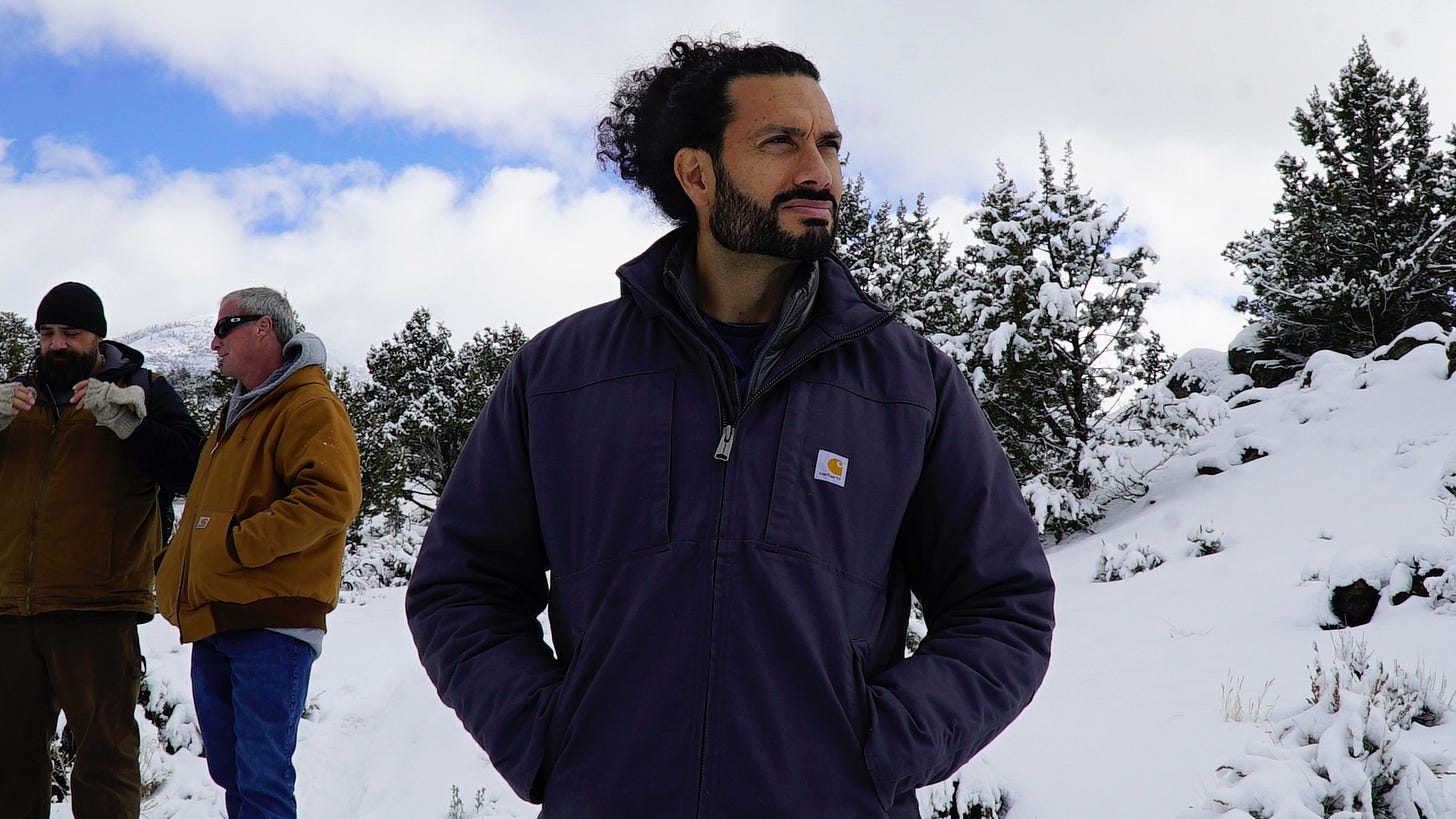Andrew Bustamente’s story is a unique one. In 2017, after serving around 15–20 years in the Air Force and CIA, he took his two decades of espionage experience and launched EverydaySpy, teaching spy-style intelligence to professionals and the public, and demonstrating how the principles of espionage can be applied to day-to-day life. Today, he co-hosts a podcast of the same name, where he continues to share his invaluable insight, as well as his take on geopolitics.
Why did we invite him on?
Last year, we invited Andrew on to break down the conflicts ongoing in Ukraine and Israel. What we got was so much more than that - we got a jaw-dropping look behind the curtain of American intelligence. It became one of our most popular interviews of the year, and we knew immediately that we wanted him back.
The last week of conflict in the Middle East has been dizzying, and we knew Andrew would be the man to put it all into focus.
What did we talk about?
To Andrew, the last week has been very revealing - it’s exposed just how many people aren’t as aware as they think. The news of US attacks in Iran shocked the world, but the warning signs were there the whole time, and the condemnations only amplified this disconnect.
”You can see the lack of understanding and familiarity people have with how Iran conducts its conflicts, and how justified Israel is in taking the actions it’s been taking.”
As soon as things started to escalate, condemnation of Trump swiftly followed. But it wasn’t just the typical left-wing attacks - his base was fractured. Trump had sold himself as the anti-war candidate, a born dealmaker who would crack some heads of state together. A promise that the forever wars would end. Within 6 months of his inauguration, it seemed like he was sleepwalking America into another battle it didn’t want.
However, the moment has potential. As Konstantin explains, Americans love victory, and if Trump could destroy Iran’s nuclear prospects without putting Americans at risk, this could be a serious political win. Andrew goes further.
”That’s ALL it is … Limited war doesn’t work. You can’t win in a limited war. You can only win in TOTAL war - when you are completely committed to destroying your enemy and making them restart their capabilities … This was a ‘limited war move’. This is no strategic benefit.”
Has it done anything worthwhile?
”All he did was make the Ayatollah look stronger. Even with our better weapons, even with the full fighting force of Israel and the United States, Iran still has the ability to enrich uranium, and they only have more cause to go to China and Russia and get the additional weaponry they need to put a warhead on a delivery vehicle.”
So if there’s no strategic benefit, and it made the Ayatollah look stronger, why has it happened? If the only upside is Trump’s political capital inflating - and even that’s far from guaranteed - why did his team sign off on it?




